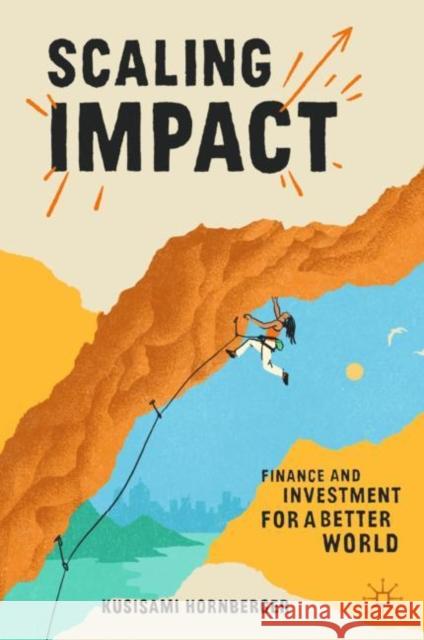Scaling Impact: Finance and Investment for a Better World » książka
Scaling Impact: Finance and Investment for a Better World
ISBN-13: 9783031226137 / Angielski / Twarda / 2023 / 272 str.
Scaling Impact: Finance and Investment for a Better World
ISBN-13: 9783031226137 / Angielski / Twarda / 2023 / 272 str.
(netto: 147,86 VAT: 5%)
Najniższa cena z 30 dni: 154,18 zł
ok. 20 dni roboczych.
Darmowa dostawa!
The global challenges confronting us — climate change, poverty, inequality, and many others — can feel overwhelming. Those of us who believe in market-based solutions to these challenges get even more disheartened when we regularly see our existing capitalist system failing us, often causing more harm than good. Many examples show how the capitalist tools of finance and investment can and make real, positive impact. Approaches like blended finance and impact investing can help accelerate progress against the world’s biggest remaining collective challenges. Yet use of these improved capitalist approaches remains far too subscale. Blended finance and impact investing remain 15 to 200 times smaller than traditional approaches to finance and investment. How can we continue to make capitalism work better by scaling these approaches and others? This book looks at how we can start making these necessary changes using strategies, structures, and practices that take advantage of capitalism's strengths. Its goal is to demonstrate how a reimagined financial system can be more inclusive and accountable to all. By shifting away from extractive, short-term practices in the name of shareholder primacy, we can move toward a system that values the role of all stakeholders.
The global challenges confronting us — climate change, poverty, inequality, and many others — can feel overwhelming. Those of us who believe in market-based solutions to these challenges get even more disheartened when we regularly see our existing capitalist system failing us, often causing more harm than good. Many examples show how the capitalist tools of finance and investment can and make real, positive impact. Approaches like blended finance and impact investing can help accelerate progress against the world’s biggest remaining collective challenges. Yet use of these improved capitalist approaches remains far too subscale. Blended finance and impact investing remain 15 to 200 times smaller than traditional approaches to finance and investment. How can we continue to make capitalism work better by scaling these approaches and others? This book looks at how we can start making these necessary changes using strategies, structures, and practices that take advantage of capitalism's strengths. Its goal is to demonstrate how a reimagined financial system can be more inclusive and accountable to all. By shifting away from extractive, short-term practices in the name of shareholder primacy, we can move toward a system that values the role of all stakeholders.











